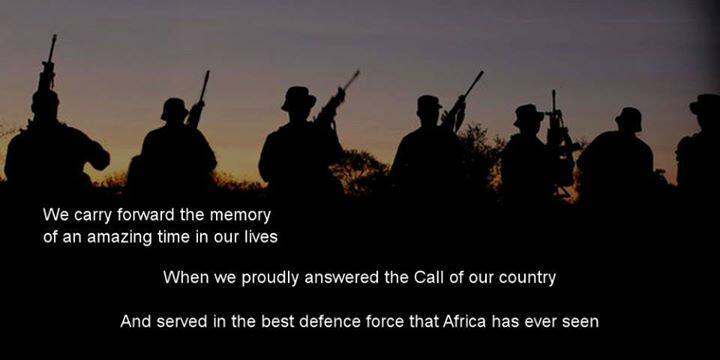It’s july 1978 and I’m leaving home for the army. Took the train into town and met up at the Cape Town castle. Suddenly I released that I was about to make the biggest mistake of my life. They shouted and cussed us telling us what to do, stealing all our freedoms. Informing us that our lives were not our own anymore, we now belonged to the army and there was no way back.
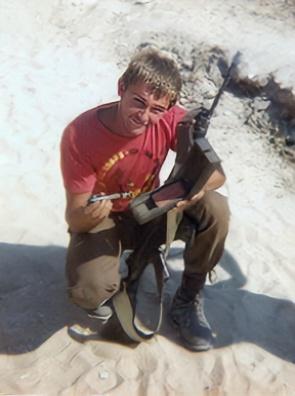
Basic training
Few hours later we were on the train to our assigned training battalions. We were young men from seventeen to about twenty five. The next day we arrived at the 7 South African Infantry Battalions camp, region Burkes Luke in the northern Transvaal. Within hours our heads were shaven and we were clothed in brown overalls, given full army equipment and on the training fields. Over 30 degrees and running around in the bush with a telephone pole on our shoulders, what was the meaning of this? O yes! The aim was to break us and teach us discipline. Maybe the worst five months of my life.
First border call.
We were not evan finished with basic training before they sent us to the border. South West Africa (Namibia) and Angola, Angola sivil war between SWAPO, UNITA, MPLA, FNLA … there were Cubans, Chinese, East Germans, Russians and free mercenaries. The poor black africans of that area were in the middle and used as pawns in the hands of there oppressors. This was a place so hot, and full of wildlife, and as we were told there was a terrorist behind every stone. We were on the Namibian side trying to protect the interests of South Africa, from the infiltration of terrorists bringing weapons over the border and killing innocent farmers and their families.
Our first border duty of six months was in Tsumeb and Tsintsabis, where we patrolled the whole area and were posted on farms and schools to keep them protected. We experienced contact with the enemy on a few ocasions, luckily was not involved in landlmine explosions which was nearly a daily happening.
Second tour:
The next turn was six months in Rundu and Caprivi, here we patrolled the no mans land area and did sweeps of the border looking for tracks. Here we patrolled along the Akavango River and evan had action with the enemy from over the river, where that day many SWAPO died. A day that I would never forget, first blood. This area sits deep I’m my heart today, would love to go back.
Last tour:
Our last border visit would be in one of the most dangerous areas, Ondangwa and Oshakati. Here we even went into Angola. For the most time we spent on patrol and even spent a week up on a water tower. From here we saw rockets sent from inside Angola over to SWA.
Accident:
One tragic episode while collecting wood for a fire we saw a group of boys chasing cattle over the border from SWA towards Angola. I was with Alwin because we were never allowed to wonder off alone, so we shouted out a warning to those boys and ended up shooting over their heads to scare them. One got hit in the back of the head, a boy of about fifteen. There he lay with his brains all over the ground and murmuring. We had to think fast, miles from sivilasjon and nobody else there, we had to put him out of his misery. One shot and it was over, scars we would carry the rest of our lives. This was the first time I cried on God to help us, so we would not lose our minds because of this insident.
Towards the end of our seven month tour our base camp was hit by such a rocket, the storage bunker was hit, and my bags were there. Lost my South African ID card and a few rolls of film.
Now we were on our way home, not boys anymore. Changed and scarred for life.
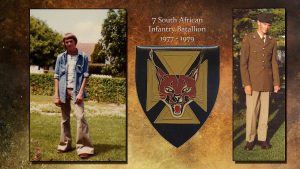
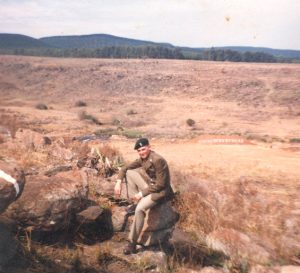
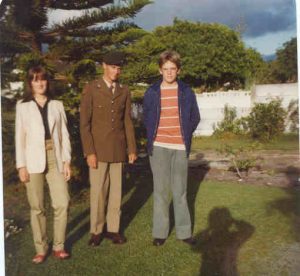
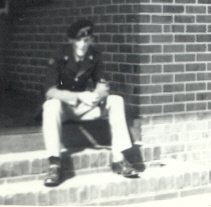
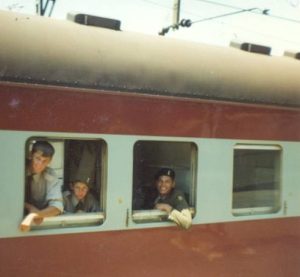
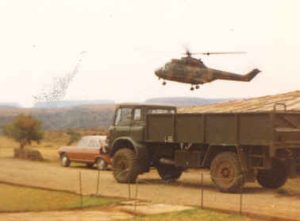
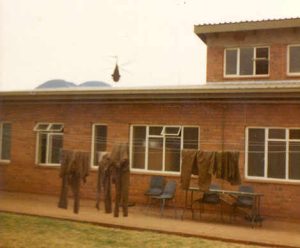
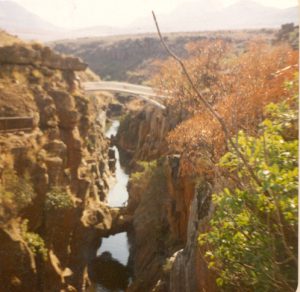

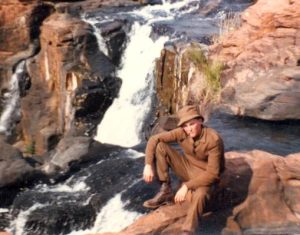
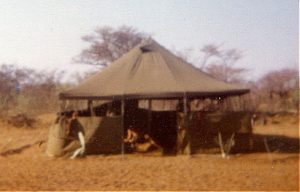
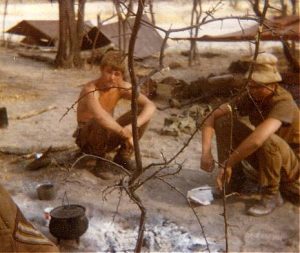
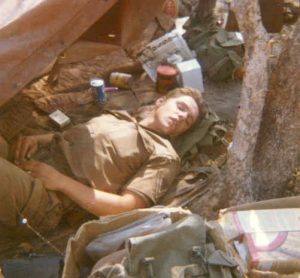
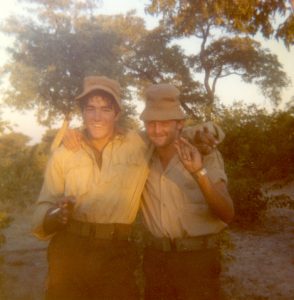
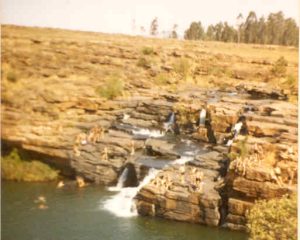
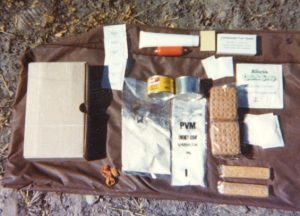
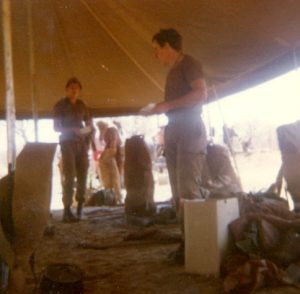
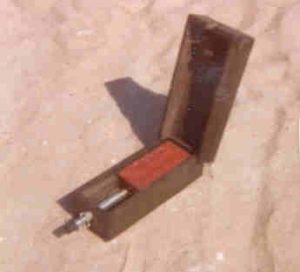
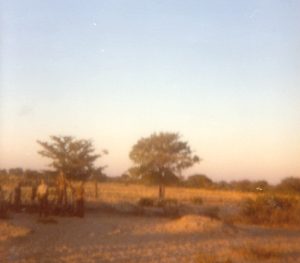
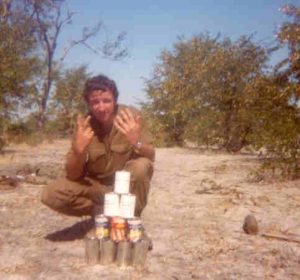
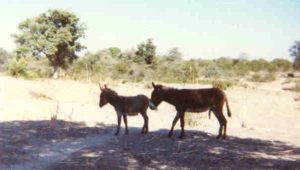
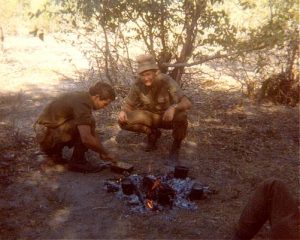
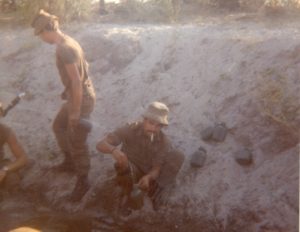
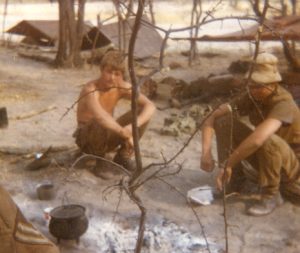
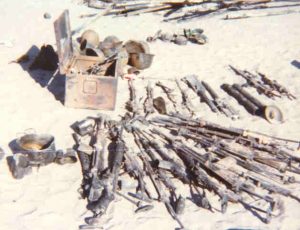
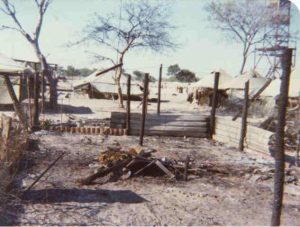
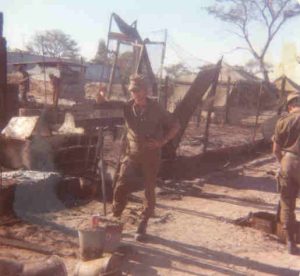
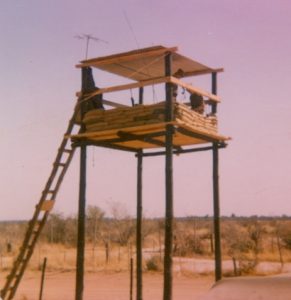
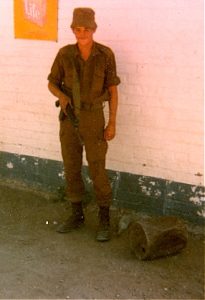

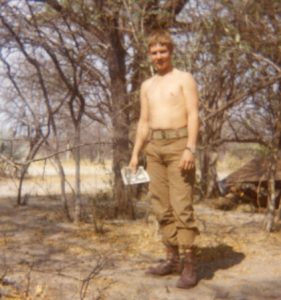
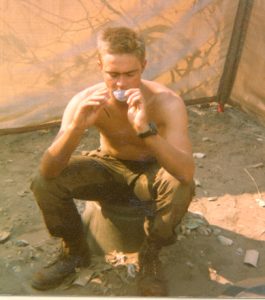
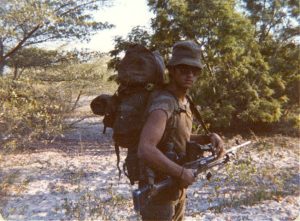
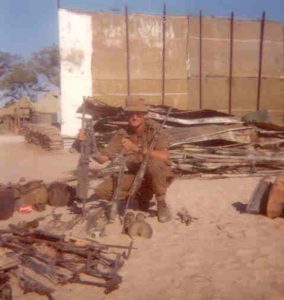
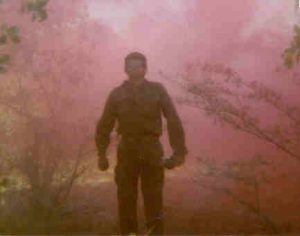
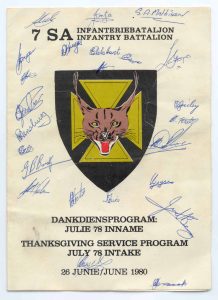
The life of a young soldier in the South African Defence Force (SADF) during the late 70s, specifically 1978-1980, would have been a complex and challenging experience. Here’s a breakdown of what it might have entailed:
The Context:
- The Border War: This period fell right in the middle of the South African Border War (1966-1989) against SWAPO insurgents fighting for Namibian independence. You would likely be deployed to Namibia, then known as South West Africa, to patrol the border and engage in counter-insurgency operations.
- Conscription: Military service was mandatory for white males in South Africa, so you wouldn’t have necessarily chosen this path. This could have led to feelings of resentment or a sense of duty depending on your perspective.
The Daily Life:
- Training: Boot camp and ongoing training would be a significant part of your experience. This would involve physical fitness, weapons handling, combat tactics, and survival skills in a harsh environment.
- Patrolling and Outposts: The bulk of your service would likely involve patrolling the border, manning outposts in remote locations, and potentially engaging with insurgents. This would be stressful and potentially dangerous.
- Living Conditions: Life in the field or at basic outposts could be harsh. You might face extreme heat, limited supplies, and poor sanitation.
- Comradeship: Despite the challenges, you would likely develop strong bonds with your fellow soldiers who relied on each other for survival.
The Psychological Impact:
- Witnessing Violence: The Border War was a brutal conflict. You could be exposed to violence and death, which could have a lasting psychological impact.
- Questioning the Cause: Depending on your background and beliefs, you might question the reasons behind the war and the system you were fighting for.
- Post-Traumatic Stress Disorder (PTSD): The stresses of combat and witnessing trauma could lead to PTSD, which wasn’t well understood back then.
